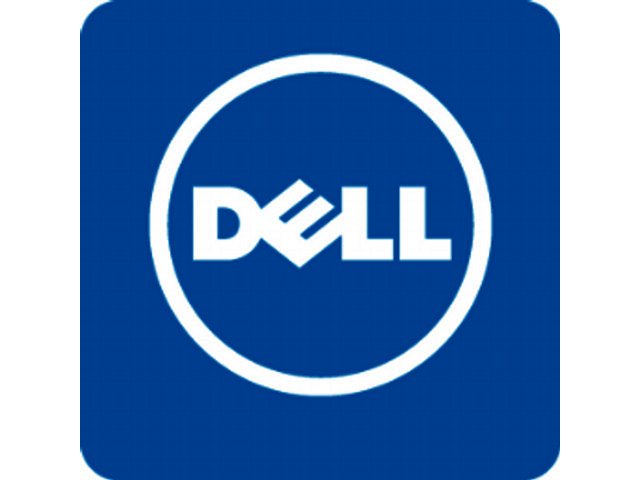Dell became the first storage array provider to announce adoption of the industry’s newest, highest-density and lowest-cost for performance enterprise flash drives, helping organisations of all sizes to drastically reduce costs associated with storing and managing their valuable data and IT applications.
With Dell’s modern, virtualized storage array architecture and unique intelligent data placement technology, Dell Storage SC Series array customers can adopt new Mainstream Read-Intensive (RI) SSDs, based on TLC 3D NAND technology. The combination of these technologies and previously available flash and hard disk drive options enables customers to benefit from lower than ever flash price-for-performance and increased storage density across all array segments to meet high-end to entry-level customer needs.
For example, Dell now can offer Dell Storage SC4020 all-flash solutions for as low as $1.66 (US) per gigabyte street price and as low as $.58 (US) per gigabyte for typical hybrid flash configurations, allowing organisations to receive faster access to critical data for lower than ever storage costs. New Dell Storage all-flash configurations can offer a lower cost per gigabyte street price before applying data reduction technology than leading competitors’ solutions deliver after data reduction.
“Dell’s unique intelligent data placement strategy allows different types of flash storage—SLC, MLC and TLC—to be efficiently deployed in multiple tier architectures that can be more cost-effective than single tier flash-based arrays,” said Eric Burgener, research director, storage systems, IDC. “Dell’s announcement of flash drives built on TLC 3D NAND technology puts them in the storage density lead at 45TB per rack unit for flash-based arrays and drops the dollar per gigabyte cost of enterprise flash storage to roughly the same cost as 15K RPM HDDs—with significantly higher performance. Cost has been the single biggest stumbling block to flash adoption in the data centre, and Dell’s announcement of a new lower dollar per gigabyte price point for all-flash configurations enables the use of flash technology across an even greater variety of enterprise workloads.”
Dell has achieved significant growth in flash adoption, growing Dell Storage SC Series all-flash and hybrid flash revenue 89 percent year over year for the first quarter of 2015. When it comes to deploying enterprise flash/SSDs, CIOs and IT leaders have selected Dell as the overall top vendor of choice, according to a January 2015, SSG-NOW independent survey of 580 global IT leaders.
“As the first array vendor to announce support for this latest flash technology, Dell continues to redefine the economics of enterprise storage and tear down cost barriers to flash adoption,” said Francois Smith, Dell Enterprise Lead from South Africa. “With these advancements, we can substantially reduce the cost of high-performing, flash-optimised arrays while also cranking-up the performance of affordable, general purpose arrays. Customers can purchase or update existing arrays to benefit from the performance and density of enterprise flash at unparalleled costs.”
Dell’s modern, virtualized storage array architecture enables an inventive approach to intelligently leverage multiple flash types in the same array based on workload goals and usage patterns. This has led to a series of high-speed, yet economical Dell Storage flash-optimised arrays in both all-flash and hybrid flash configurations. Since cost has been the primary barrier to flash adoption, Dell has focused on efficient drive utilisation to relentlessly reduce the overall cost of enterprise flash.
Dell storage arrays lower flash cost and increase density across all array categories
With Dell’s patented Data Progression intelligent data placement technology and the release of Dell Storage Center 6.6 array software, Dell Storage SC Series arrays can adopt and optimise new Mainstream RI flash drives based on TLC 3D NAND. These Mainstream RI drives are the industry’s lowest-cost per gigabyte, highest-density enterprise flash drives, enabling Dell to offer SSDs at approximately the same price per gigabyte as high-end 15K HDDs and up to 24 times performance improvement, up to six times the density, lower latency and lower power consumption.
Dell’s flash-optimised Data Progression software allows Dell and its customers to uniquely leverage leading edge flash technologies to create more affordable, high-performance solutions. In flash-optimised solutions, Dell now offers arrays that combine the new Mainstream RI flash drives with highest-performing Write-Intensive (WI) flash drives. With this approach, intelligent array software steers all writes to the higher endurance flash and manages writes to the lower cost Mainstream RI drives. This lowers the overall cost of Dell’s enterprise flash array solutions while maintaining high performance.
As a result, Dell further removes the cost barrier to enterprise flash adoption across the full portfolio of Dell Storage SC8000, SC4020 and SCv2000 Series with hybrid flash or all-flash array configurations, greatly improving the performance of affordable general purpose arrays and dramatically reducing the cost of the high-performing flash-optimised arrays.
With the new drives, available in capacities up to 3.8 terabytes, flash becomes more practical at any scale. The Dell Storage SC4020 can provide a complete 90 terabyte array in only 2U of rack space. Additionally, Dell Storage SC8000 arrays can support 62 percent more flash for a total of up to 3 petabytes of raw flash capacity in a single array.
Availability:
- Dell Storage SC Series arrays will begin supporting Mainstream Read-Intensive flash drives, based on TLC 3D NAND technology, in August 2015.





